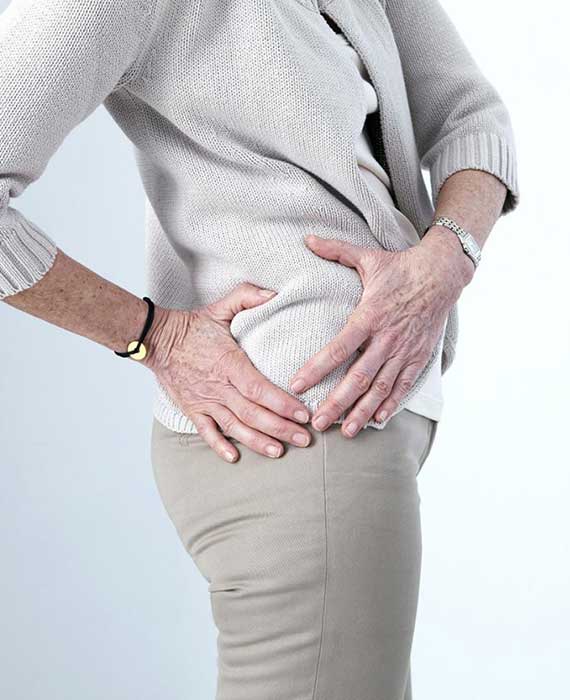Private Hip Replacement and Hip Arthritis in Surrey & London – Private Appointments – See A Consultant Faster – No Waiting Lists
- Do you have pain and stiffness in your hips?
- Is the pain affecting your day-to-day activities?
- Do you are in pain even while resting?
- Are you struggling to work or have a social life due to the pain?
Hip replacement surgery is usually necessary when the hip joint is worn or damaged and you are in pain even while resting.
Hip replacement surgery is one option, but there are a number of others.
You don’t have to put up with hip pain. Contact our hip specialists to discuss your options.
How we can help
Surrey Orthopaedic Clinic offers a comprehensive, dedicated specialist hip service for the diagnosis and treatment of hip pain, sports hip and groin injuries, hip osteoarthritis and hip labral tears, CAM bony lumps and pincer lesions. We provide high quality contemporary care for hip conditions in patients of all ages.
Our highly skilled, multi-disciplinary teams include world-class international fellowship trained orthopaedic surgeons educated in modern techniques. We also have radiologists with a special interest in musculoskeletal conditions who have access to the latest innovations in scanning technology for joint and cartilage damage assessment.
Self Pay and Health Insurance Patients Welcome
Book an appointment now on 0203 1 30 40 50

Patient Testimonials
“From my own experience I would not hesitate, if you are experiencing significant discomfort, to have a hip replacement, and go back to enjoying the sort of life you had before the problem arose. Whilst the immediate post-operative period is painful and requires work and exercise, the end result is well worth it.”
“Thanks to Mr Michael and all his staff at the hospital and physio I’m getting my life back, and looking forward to the future, like running around the garden with my grandchildren pain-free. I can’t help thinking about the people years ago that were unable to have hip replacements. The pain they must’ve gone through. I consider myself very lucky.”
Hip Arthritis & Hip Replacement
What is Hip Arthritis?
When the smooth articular cartilage which covers the joint surface is severe and due to wear and degeneration, it becomes irregular, fissured and may fall off revealing the underlying bone.
With time, cartilage will disappear, and without the help of cartilage, the bone surfaces will rub together which stimulates bone growth, leading to bone spurs. If this happens the underlying bones can rub together, producing the pain and stiffness typical of arthritis.
Severe arthritis can interfere with activities of daily living and limits lifestyle. X-rays of the Hip joint may show joint space narrowing (due to lack of cartilage), and bone spur formation (due to bone rubbing directly on bone).
Who gets Hip Arthritis?
Osteoarthritis (OA), caused by long term wear to the joint articular cartilage is the most common. This is a slow progressive process that usually occurs in older patients. Osteoarthritis can happen to anyone but some people are more at risk than others.
Risk Factors are:
- Female >male
- 40 years old +
- Obesity
- Injury to the joint such as after trauma or an accident involving the joint.
- Family history and genetic factors
- Inflammation such as Rheumatoid Disease or Psoriasis.
- Early onset Hip Arthritis: If you have a CAM or Pincer FAI type of problem, ignoring this pain and continuing with the painful activity can lead to early onset arthritis as the joint becomes more and more damaged.
Signs and Symptoms of Hip Arthritis
– Dull toothache pain, stiffness and swelling are typical.
– Flare ups often occur
– Inability to continue with daily activities or lifestyle.
Tests and Diagnosis
At Surrey Orthopaedic Clinic our expert doctors will examine your hip, assess the level of pain and limitations of how this is affecting you and perform diagnostic imaging – such as X-rays and MRIs. Your treatment will then be a tailored shared decision to suit your personal needs and aims. The physical, emotional and social aspects of your health will be discussed.
Physiotherapy
Once you have hip arthritis and your cartilage is breaking down, your body cannot generate new cartilage. By rehabilitating your hip with a physiotherapist, you may slow down further hip joint damage, reduce pain, and improve your quality of life. Even people with established arthritis can benefit from this, as poor muscles cannot compensate for worn out joints to prevent stiffness.
Physiotherapists can provide you with:
- An individualised exercise program so you can improve your range of motion and strength around your hip, thereby reducing the burden on your hips and reducing pain.
- Hands on physical therapy techniques that will increase your joint flexibility and reduce stiffness and pain
Treatment of Hip Arthritis
There is no cure for arthritis but there are a number of treatments that may help relieve the pain and disability it can cause. These include:
- Lifestyle modification
- Weight loss: reduces stress on the hip
- Switching from high impact activities (like jogging or tennis) to lower impact activities (like swimming or cycling) will put less stress on your hip
- Physiotherapy
- Brace and supports: An “unloader” brace shifts weight away from the affected side of you body.
- Painkillers: anti-inflammatory tablets
- Corticosteroids (also known as cortisone) are powerful anti-inflammatory agents that can be injected into the joint. These injections provide pain relief and reduce inflammation; however, the effects do not last indefinitely.
- Glucosamine and Chondroitin are substances found naturally in joint cartilage, and can be taken as dietary supplements. Although patient reports indicate that these supplements may relieve pain, there is no evidence to support the use of glucosamine and chondroitin to decrease or reverse the progression of arthritis.
Self help websites such as www.surreyimsk.com are useful resources for more ideas and information.
Surgery Options for Hip Arthritis: Total Hip Replacement
Surgery is always recommended only after other treatments described above have failed.
Total hip replacement is used for the whole joint.
There is strong evidence that shows a timely operation will save function and activity levels.
We actively monitor our outcomes to ensure the highest standard of care is maintained.
Do I need a Hip Replacement?
If you have tried conservative treatments (physiotherapy, activity modification, weight loss, injections, simple pain killers and anti-inflammatory medications) and are still experiencing severe pain in the hip/groin that limits your everyday activities like walking, sleeping, climbing stairs, getting in or out of chair, then it may be the best option for you to consider hip replacement surgery.
During surgery your surgeon will remove the damaged cartilage and bone, and then position a new hypo-allergenic metal implant using a ceramic ball with a plastic socket lining joint to restore the function of your hip.
80-90% of people who receive the surgery have improved function and decreased pain. However, it is important to enter the surgery as strong as possible to increase your chances of success, and it is also essential that you commit yourself to a strict rehabilitation process after surgery. Expected post surgery rehabilitation is over 3-6 months. Some people might need more time to heal than others (12-14 months).
Our Address
Surrey Orthopaedic Clinic
Prime Health Weybridge
Units 10&11
Horizon Business Village
1 Brooklands Road
Weybridge
KT13 0TJ

